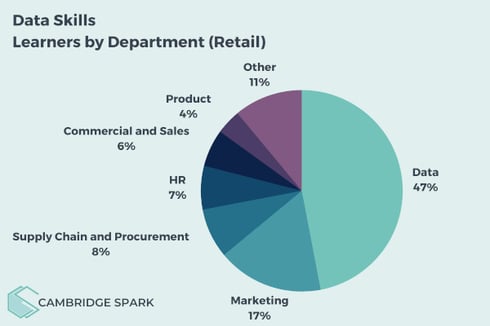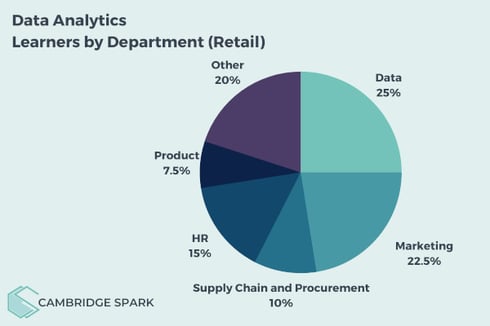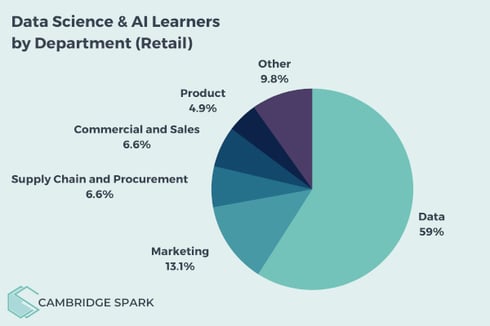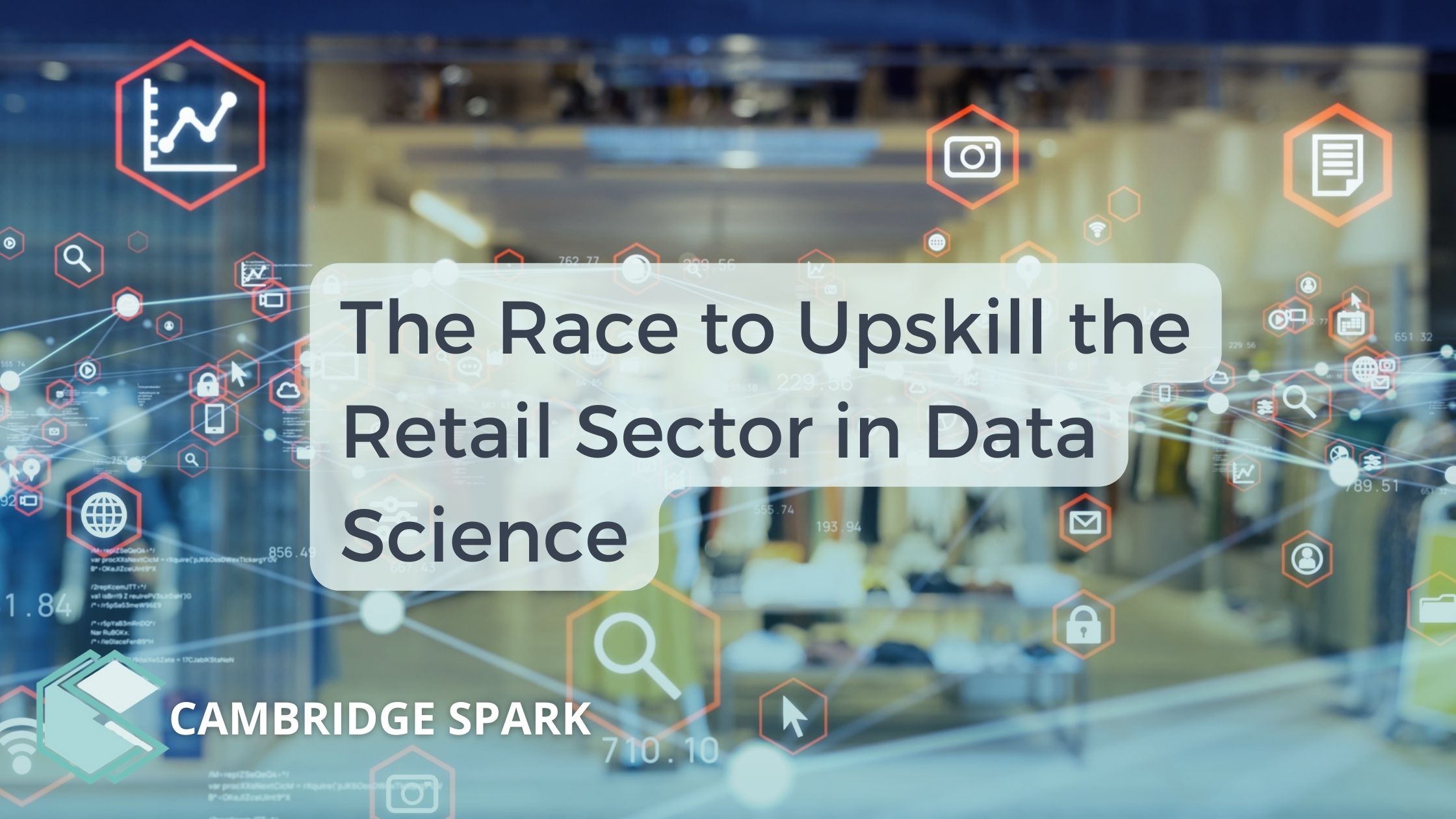The digital skills gap is well documented and is being felt across industries - retail included. Organisations are generating masses of valuable data but are lacking the skills to transform it into actionable insights that will create a competitive advantage for their businesses. They know they need more data analytics talent, but it’s difficult and costly to find candidates with the right skills - which is why more and more companies are reaching out to data science and AI capability partners like Cambridge Spark to help train their existing staff.
Looking through our own company data here at Cambridge Spark, we began to see some interesting trends emerging. We discovered that the data-driven retail businesses we work with have a diverse spread of departments putting staff members forward for data skills training rather than relying solely on a central data team. In this article, we’ll explore the growing inter-departmental demand for data skills in retail.
The need for data skills outside of the Data Team
Many organisations have created a central data science team which is responsible for dealing with data across the organisation and acts as a querying and reporting service for other departments. The data science team will produce the reports or insight that other teams request, as well as working on their own projects.
However, we’re seeing increasing demand in retailers for improved data skills outside of the central data team. This allows other teams across the retailer to become self-sufficient for their data needs and produce their own insights and reports. By combining their domain expertise with the ability to analyse data effectively, data upskilling is allowing them to meet their goals more effectively. This increase of data capability then allows the central data teams to focus on more complex and strategic projects that maximise the impact of data science on the retailer’s competitive advantage.
While the demand for more advanced Data Science and AI upskilling tends to primarily remain within central data teams, the demand for skills to engage with data, create visualisations with data and use Python programming now increasingly come from a range of non-data functions with regards to the retailers we work with.
Which retail departments are upskilling for data?
Of all of our learners from the retail sector, less than half of them work in their organisation’s central data team. Marketing is the second most popular department at 17% with Supply Chain and Procurement coming third with 8%, HR at fourth with 7%, Commercial and Sales at fifth with 6%, and Product at sixth with 4%. The final 11% marked as ‘Other’ is comprised of various departments which currently show only minimal demand for data upskilling.

We can break down that total number further across our two most popular programmes, the Level 4 Data Analyst apprenticeship (which upskills employees to use Python for data analytics) and the Level 7 Data Science and AI apprenticeship (which upskills employees who already know Python to deploy advanced AI and Machine Learning models at work).

This breakdown in the charts above and below show that even on the substantially more advanced data science & AI programme, there is still a significant percentage of apprentices coming from non-data departments, indicating an increasing demand for inter-departmental data capability.

Why is the demand for inter-departmental data skills growing in the retail sector?
Data-driven retailers are increasingly concentrating on the entire end-to-end customer journey, which tracks the customer from their first touch point with the organisation, with data being collected in increasing volumes with each subsequent interaction with the business, often past past the point of purchase.
Leading retailers are generating much broader and deeper customer datasets that capture and process all of this data in real-time to improve the overall customer experience. Data can be used for more than just holistic business insights. Take Marketing for example - effective use of data can be used to initiate promotional offers, alerts and other marketing activities, to name a few instances.
When companies move away from a central data team model, to one where different departments can be more independent for their data goals, each different department’s data upskilling needs vary greatly depending on the strategic objectives they are striving to achieve. However, let’s consider some broad examples. Data skills could be useful across departments in the following ways:
- Marketing: gives professionals the skills to create customer forecasts, analyse customer feedback and behaviour, and create targeted customer communications
- HR: enables professionals to assess the impact of training courses, analyse causes for staff turnover, and assess staff reward packages
- Supply Chain and Procurement: allows professionals to analyse sales data to optimise stock deliveries to store, optimise stock levels held in warehouses for profit, and ensure factory production is tied to customer demand and inventory levels
To find out more about how your retail business could leverage data skills to transform your customer data, please get in touch with us using the form below.
